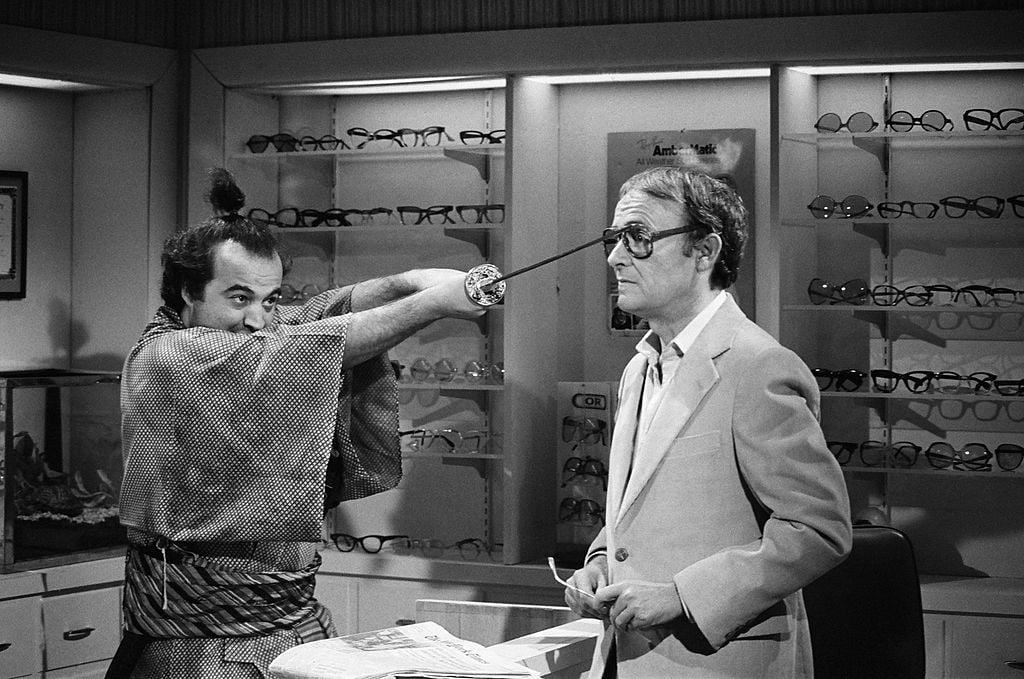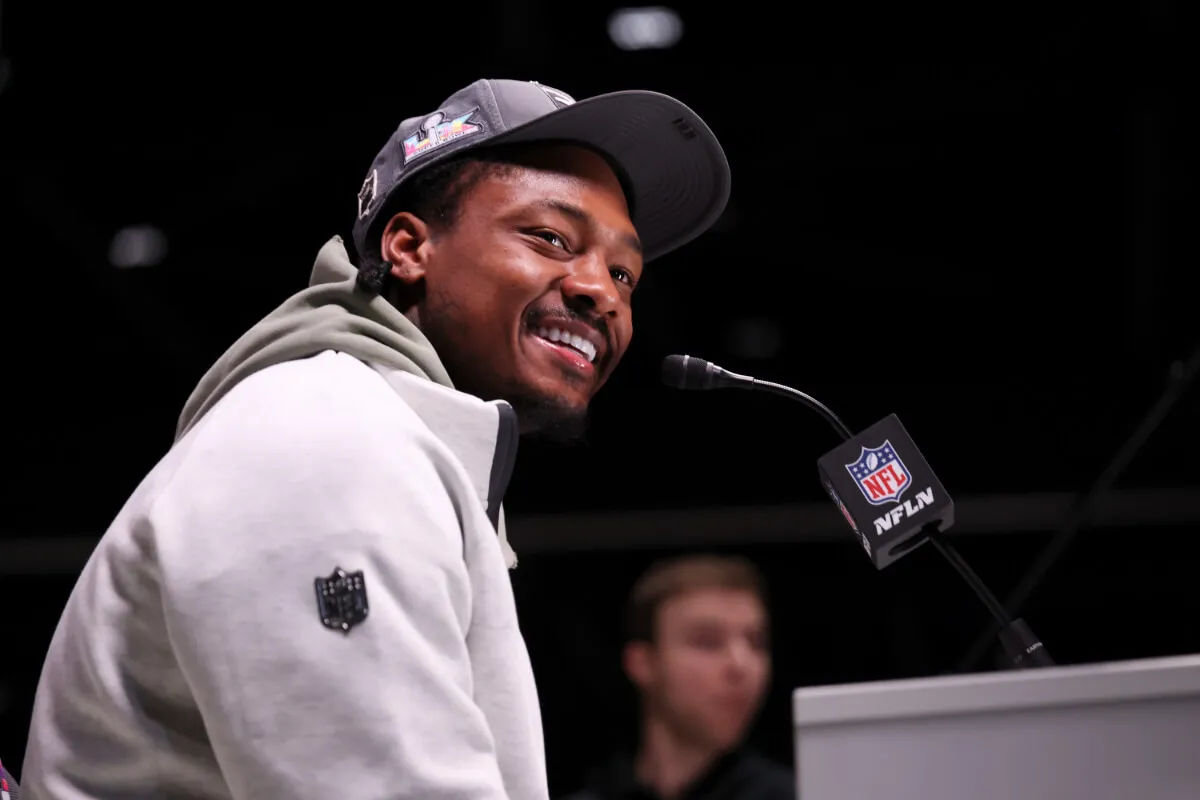Most Shocking ‘Saturday Night Live’ Episode Had a Cast Member Accidentally Getting Cut By a Sword
Longtime fans of Saturday Night Live have seen it all in terms of controversial events on the show over the last 45 years. From ‘F’ bombs spewed during the live telecast, to Sinead O’ Connor tearing up a picture of the Pope, SNL has captured lightning in a bottle with controversial comedians, actors, and musicians.
Out of all the most talked about episodes, one has virtually been forgotten. If spouting profanity live or controversial monologues still ruffle feathers, accidents that occur during edgy sketches are nothing short of shocking.

With the recent passing of the legendary comedian and writer Buck Henry, it’s worth looking back at some instances from the ten times he hosted the show in the mid to late ’70s. During the second season, he was unexpectedly injured at the end of a skit, proving how crazy 1970s TV sometimes was.
Buck Henry had his head sliced by John Belushi
Those familiar with the early days of SNL will know Belushi was a true wild man in each episode. He’d often disrupt a sketch with complete chaos, all for the sake of getting a laugh. One of those was his sometimes out of control Samurai Futaba bits.
In each sketch, Belushi would play a Samurai warrior with a sword who happens to be running a very stereotypically American type of business. During the 13th episode of the second season, Belushi and Henry starred in another of these where the former played a “Samurai Stockbroker.”
Anyone who’s seen these sketches knows Belushi would often tear up the room with a real samurai sword, which is surprising considering how dangerous this was. As a comedic madman, he didn’t hold back, sometimes swinging the sword maniacally without worry of who was in his path.
Unfortunately, one of his swings got too close to Henry’s head. The sword nicked Henry’s forehead, causing him to visibly bleed live on the air.
Henry took it in stride, as did the rest of the cast
As Henry described for the Archive of American Television in the video above, Chevy Chase was astute enough to mention the accident later in the episode during Weekend Update. He even put a bandage on his forehead to acknowledge Henry’s injury. A few minutes earlier, a doctor (Belushi’s doctor of all people) treated Henry’s wound backstage.
By the end of the show, the whole cast started wearing bandages on their head to show solidarity for what happened. It was the best type of edgy, live comedy where anything could happen and did.
Then again, just how risky were those Samurai Futaba sketches? Nowadays, Lorne Michaels likely wouldn’t allow a real sword to be swung around so violently during a skit. Michaels has probably safeguarded everything now on SNL so incidents like this can’t happen again.
Only cast members accidentally spouting profanity are the things he can’t control. Eddie Murphy’s recent return to the show after 35 years away, and spouting four-letter words in a couple of sketches, proved it can easily repeat.
It was Henry’s idea to keep recurring sketches going
According to Henry’s AAT interview above, Lorne Michaels gave him credit for inventing the idea of making certain sketches recur several times per year in different variations. Henry said this wasn’t really a new idea in the annals of TV history, though still gladly took credit for bringing it to SNL.
Having those Samurai sketches pop up each season with Henry and Belushi made for some classic comedy moments. At least the forehead cutting accident didn’t lead to a major disaster. Imagine what would have happened had the injury been more serious.


